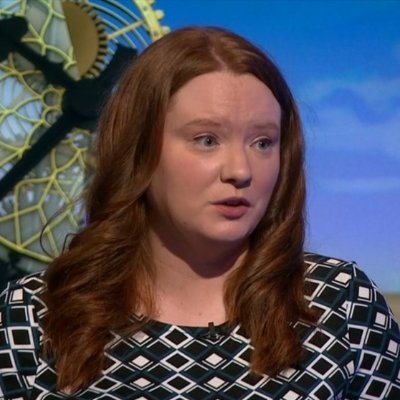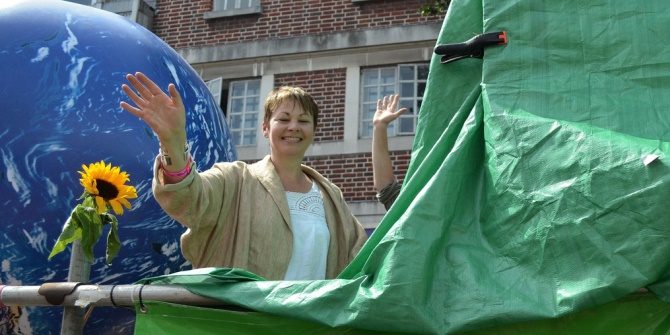 Clare Rice writes that the revolt against Arlene Foster, leader of the Democratic Unionist Party (DUP) in Northern Ireland, has been a long time in the making, yet nobody foresaw that matters would come to a head when they did or in the way that they did.
Clare Rice writes that the revolt against Arlene Foster, leader of the Democratic Unionist Party (DUP) in Northern Ireland, has been a long time in the making, yet nobody foresaw that matters would come to a head when they did or in the way that they did.
As rumours started circulating of a letter of no confidence being passed between elected members of the DUP on Tuesday, 27 April, Arlene Foster was asked outright by a journalist about the security of her tenure. Her response was resolute, if deflective – ‘stories on leadership come up from time to time and it’s one of those times, so we’ll just deal with it and move on because I have bigger things to do…’ Just over 24 hours later, Foster shared a statement announcing her resignation, with a schedule of stepping down as DUP leader on 28 May and as First Minister for Northern Ireland at the end of June.
What is remarkable about this situation is not that the revolt within the party happened – this has been brewing for some time. The Renewable Heat Incentive scandal and subsequent public inquiry, followed by the ill-fated confidence and supply arrangement with the Conservative Party, did little to instil confidence in the party’s leadership. This was compounded by Brexit (which the party had campaigned for) and the Protocol on Ireland/Northern Ireland coming into effect despite the party’s clear opposition to it. The deal that was ultimately secured was built on the very outcome the party had fought to avoid. The protocol moved the infamous ‘backstop’ conditions to becoming the default, and on 1 January 2021, arrangements came into force that enacted a de facto trade border in the Irish Sea.
What came to pass in Northern Ireland in the early days and weeks of 2021 only added further to difficulties for the party. The existence of a border was denied by the Secretary of State for Northern Ireland, calls to invoke Article 16 of the Protocol were rejected (this being a device to take unilateral action to overcome negative consequences of the protocol’s outworking), and threats directed towards staff operating the border posts at ports in Belfast and Larne raised security concerns.
In February 2021, the DUP introduced a five-point strategy to undermine the protocol, inclusive of refusal to participate in protocol-related votes in the Northern Ireland Assembly, disruption to North-South bodies and engagement, and the launch of an e-petition aimed at demonstrating the ‘strength of feeling’ in opposition to the protocol. In March, tensions reached a peak in Northern Ireland when it was announced that there would be no prosecutions relating to the funeral of senior IRA figure, Bobby Storey, held in June 2020. This was an incident where over 2,000 mourners, including leading Sinn Féin figures, were in attendance at a time that COVID-19 restrictions permitted 30. The debacle further undermined confidence within the unionist community in the Police Service of Northern Ireland, and further fuelled perceptions of a two-tier policing system favouring nationalists.
Foster has been at the helm of the party throughout the Renewable Heat Incentive scandal, Brexit, the decision to support the Conservative Party in Westminster, the protocol coming into force and the violence seen in recent weeks. After a positive start to her leadership, discontent within the party soon took hold and escalated to the point of the revolt we have recently seen.
It is simultaneously difficult to see how the party’s internal redesign will not have consequences for politics as we know it in Northern Ireland, and hard to see how anything will drastically change. Fundamentally, Foster was backed in the steps she did take as leader by the party that has now brought about her downfall. Arguably, she is now being held personally responsible for these moves as a way to try and mark a line in the sand and for the party to start out on a new footing. But there is little a new leader will be able to do to distance or remove the party from this legacy. In that sense, it will be business as usual for whoever takes over.
However, it is all but inevitable given that the party will seek to elect a leader who will take a harder line on the protocol, on issues such as abortion, and on the nature of the working relationship with Sinn Féin in particular. This may not necessarily mean that the party will take a new direction, but the way in which politics is done is likely to be altered. In what is already an enforced working relationship through the power-sharing structures in place, any such changes bear the potential to be disruptive, and especially so as attentions increasingly turn towards the impending Assembly election due to happen next year.
It is also unusual that the position has become vacant without a clear successor. Very little has been given away by the party about what might happen next, despite widespread public speculation, and at the time of writing, there are a number of different names being mooted for who the next leader might be. There is also talk that Foster’s role could be divided, with the First Minister being distinct to the party leader.
It is notable also that the only people who will vote on a successor are Members of the Legislative Assembly and MPs – with it reported that more than three-quarters of DUP MLAs were signatories to the letter that brought about her demise, there is a good chance that one of these individuals will now rise to the top of the ladder as a result.
The real surprise in this saga has come from Foster’s decision to resign rather than contest her position. This is the clearest indication of the intensity of opposition to her leadership that came to the surface within the party. Having faced down numerous previous calls for her departure, and after refusing to accept it as a pre-condition to rebuilding a working relationship with Sinn Féin after the 2017 institutional collapse, it is noteworthy that Foster opted to leap before being firmly pushed.
As things stand currently, what will happen next remains anyone’s guess, but we can be sure that all eyes will be on the DUP in the weeks ahead.
___________________
 Clare Rice (@Clare_Rice_ ) is a Researcher at Newcastle University.
Clare Rice (@Clare_Rice_ ) is a Researcher at Newcastle University.
Photo by Dimitry Anikin on Unsplash.







